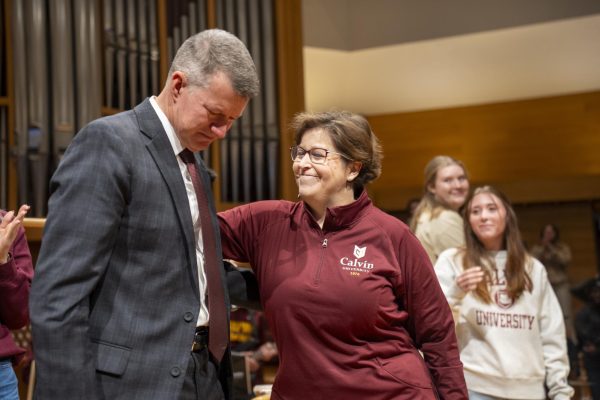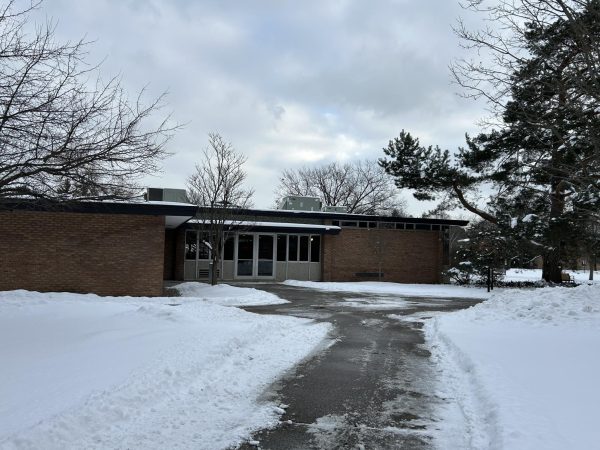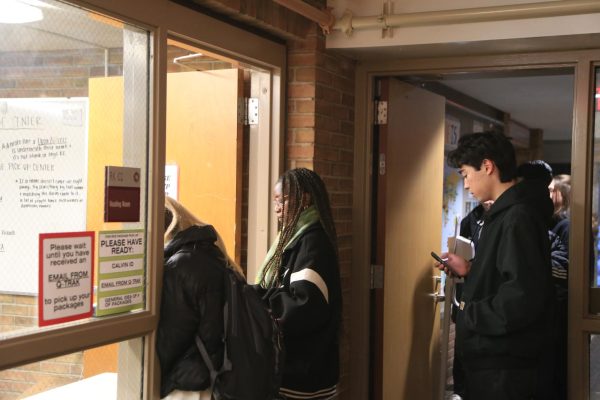Fulbright and Goldwater research scholarships awarded to students
Three Calvin students recently received major academic awards: sophomore Nathaniel Kazmierczak was named a Goldwater scholar, junior Brianna Busscher received a Goldwater honorable mention and senior Micah Warners was named a Fulbright scholar.
Despite Warners’ impressive credentials, the Fulbright scholarship came as something of a surprise.
“My dad encouraged me to apply for it, and I did it because I thought it would be a cool opportunity, but I didn’t think there was any chance and I put it in the back of my mind,” said Warners.
In January, he heard that he was a finalist and started to get excited. The Fulbright scholarship will enable Warners to teach English 20 to 25 hours a week in Honduras for the 2017-2018 school year as part of a micro scholarship program. Warners is looking forward to make a difference in the community he will be joining.
“English is so valuable,” said Warners. He shared that in this program he will interact with high caliber students of a variety of backgrounds. Additionally, this is the first Fulbright teaching program in Honduras.
“I will be able to kind of start [a teaching program],” said Warners.
Warners will also spend approximately 20 hours a week on an additional project. Warners has a lot of freedom to choose what kind of project he would like to do. Possibilities he is considering include working with a non-profit or working with residents to start a community or rain garden.
Warners has experience with rain gardens, having worked for the past three summers with Plaster Creek Stewards. Warners worked with student “Rain Teams” to clean up creeks and plant rain gardens, which improve water quality and increase biodiversity. A project like this would give Warners the opportunity to continue integrating his diverse passions.
“If it is possible to not compromise a passion … do it,” commented Warners on his multiple majors. Early in his college career, he knew he wanted to teach but he didn’t know what. So he decided on two education majors and later added biology. Warners’ passion for teaching comes from a love of “being around people and seeing how they grow.”
Warner also credited his roommate, Enrique Melara, and his professors for supporting him as he pursued his interests:
“In a lot of my classes I’ve been able to find or choose a topic I’ve wanted to study more. I can choose a topic related to the environment. It’s cool to be encouraged to integrate different things and study different things and not focus on one topic.”
Professors, he said, are eager to help students. “Just because it’s a Fulbright doesn’t mean you couldn’t do it. Utilize professors to review your essays. Seek advice. I had three professors look over [my] essays. They went from being mediocre to a lot better.”
Kazmierczak also emphasized the importance of interaction with professors. He started researching with chemistry professor Douglas Vander Griend three months after arriving at Calvin.
“Calvin’s undergraduate research program is tailored toward is giving undergrads a central place in the scientific process.”
This is different from programs where professors and graduate students do much of the actual research and undergrads are peripheral to the process.
Kazmierczak encouraged his fellow students to start pursuing their interests early in their college experience and interact with professors.
Warners also encouraged other students not to worry if they have trouble choosing between passions.
“I still don’t know what I’m doing with my life. It’s okay if you don’t know at sophomore year and switch a few times,” he said. Warners hopes to attend graduate school, and work with Spanish speakers in the US.
For both Warners and Kazmierczak, this recognition confirms the importance of their work and sense of calling.
“It’s a validation that the work Dr. Vander Griend and I have been doing is good work,” said Kazmierczak. “The research path I have chosen is one that God has allowed me to be good at, and the skills I’ve acquired at Calvin … will allow me to succeed.“
“Recognitions come when they come, if they come,” said Kazmierczak. “The science is what matters.”






